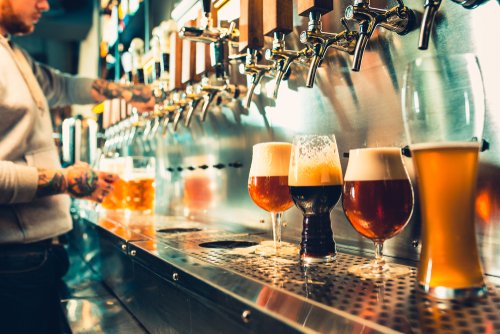London (Brussels Morning) A recent report says reinvesting in Europe’s breweries could save hundreds of thousands of jobs and bring in billions to the economy.
Pandemic-induced restrictions have had a disproportionate impact on the hospitality sector, including bars, restaurants and pubs, with an inevitable effect on Europe’s brewers. The Brewers of Europe, the trade body representing Europe’s 11,000 breweries, says, however, that aiding a full recovery of the brewery sector could save the more than 800,000 jobs lost over the past year due to the almost having of sales due to closures and restrictions.
“As we look ahead to the recovery, we need to get the reopening right. We need clarity and certainty”, said Pierre-Olivier Bergeron, Secretary General of The Brewers of Europe, A thriving hospitality sector is a key to the wider recovery, including as an important symbol of consumer confidence.
“With targeted support, beer hospitality can lift the economy, bring in much needed government revenues and boost jobs all along the brewing, production and hospitality value chain. Bars and pubs can once again become pillars of the local community — and with it, the economy”.
Sector loss
According to the recent economic report to assess the impact of COVID-19 on
the brewing sector in Europe in 2020, beer sold on-trade, e.g., in bars, restaurants, coffee shops, clubs and hotels, dropped from 126 million hectolitres in 2019 to 73 million hectolitres in 2020. That decline was slightly counteracted by an 8% uptick in off-trade — consumed off premises — beer sales, making the total fall in total sales 34 million hectolitres, amounting to 3 billion euro. That loss trickled down to suppliers when beer-related procurement fell 8% or 2 billion euro.
Most estimated job losses are thought to be in hospitality with almost 43% of European employees losing their jobs in the sector. There is thought to be an additional 7.5% drop in jobs among suppliers, while 21,000 new jobs in retail off-trade.
Meanwhile, the value added by the beer sector reduced by over 15 billion euro or 25%, from 60 billion euro in 2019 to 47 billion euro in 2020. Taxes fell to 36 billion euro in 2020, down by 23% decline from 2019.
Elsewhere, beer sales have exceeded expectations. In the UK, after the reopening of pubs in April for outdoor seating, an underestimation of demand meant production at breweries had to be ramped up.
Optimistic forecast
An optimistic report by US firm Technavio, also estimated a growth in the global market of craft beer between 2020 to 2024 of 47.79 billion dollars.
Kickstarting recovery could be challenging, however, in some parts of Europe, as restrictions are yet to be fully lifted and government finances remain stretched.
Breweries, the supply-chain and venues can only help bridge the gap and fix the detriment to Europe’s social life, hospitality and tourism sector with government help, say the Brewers of Europe, adding its partners had consistently called for help.
“We are becoming more sustainable in our practices and more aligned with our local environment. We are getting more creative in our brewing methods and our range of beers. And we are leading the way in responsible drinking, including through the low alcohol choices on offer”, said Bergeron.
“As Europe plans its recovery, we are ready to play our role in driving the economy, continuing our push for greener practices, and rebuilding the local communities”.
It’s possible many hospitality establishments will unfortunately never reopen even after the various lockdowns across Europe, but among the vast industry there have also been multiple venues that have weathered the crisis and Covid-safe environments ready for consumer to return to the bar.




